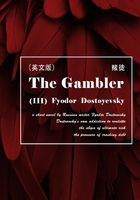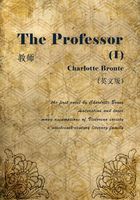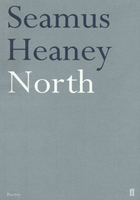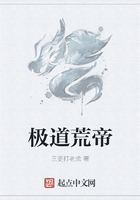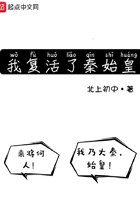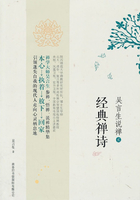IMPRESSING THE VIENESE
BUT HAYDN FEELS THE WRATH OF AN ANGRY YOUNG MAN
VIENNA, CAPITAL CITY OF THE HOLY ROMAN Empire, seat of the Holy Roman Emperor, formal, correct, proper. Into its midst there arrived in November 1792 a young man just one month short of his twenty-second birthday, from Bonn in the Rhineland several hundred miles to the northwest, who had never worn a wig in his life, let alone a powdered one, whose clothes were ill fitting and in need of repair, and whose accent was rough and harsh on the sophisticated ears of the Viennese.
And what of the city in which he had arrived? At the crossroads of Continental Europe, Vienna could lay claim to being Europe's most exotic city. Less than a decade before Beethoven's arrival, a traveller had written that the streets of Vienna teemed with…
Hungarians in their close-fitting trousers, Poles with their flowing sleeves, Armenians and Moldavians with their half-Oriental costumes, Serbians with their twisted moustaches, Greeks smoking their long-stemmed pipes in the coffee-houses, bearded Muslims with broad knives in their belts, Polish Jews with their faces bearded and their hair twisted in knots, Bohemian peasants in their long boots, Hungarian and Transylvanian wagoners with sheepskin great-coats, Croats with black tubs balanced on their heads.
And everywhere there was music. It went from the very highest social strata to the lowest. In the 1790s every member of the Emperor's immediate family had taken music lessons and was proficient either on an instrument or in singing. The late Emperor himself was capable of directing an opera from the harpsichord, with his sisters singing the main parts and performing in the ballet sequence. There was a first-class court orchestra, court choir, and court opera company. The same traveller wrote:
One cannot enter any fashionable house without hearing a duet, or trio, or finale from one of the Italian operas currently the rage being sung and played at the keyboard. Even shopkeepers and cellar-hands whistle the popular arias… No place of refreshment, from the highest to the lowest, is without music. Bassoonists and clarinettists are as plentiful as blackberries, and in the suburbs at every turn one alights upon fresh carousing, fresh fiddling, fresh illuminations.
Vienna could lay claim to being the most easygoing, even frivolous, city in Europe (a mantle that Paris would assume in later decades), where enjoyment came before anything else. An English traveller wrote that 'good cheer is pursued here in every quarter, and mirth is worshipped in every form'.
A famous Viennese motto was that 'matters are desperate, but not serious'. There was street entertainment, dancing was everywhere, and cafés and Weinstuben were full late into the night. Prostitution was rife, and if the Emperor himself is to be believed, reached into every corner of the city. When it was proposed to him that brothels should be licensed, he replied, 'The walls would cost me nothing, but the expense of roofing would be ruinous, for a roof would have to be constructed over the whole city.'
Another British visitor neatly caught the twin themes that ran through Vienna, when he wrote, 'No city can at the same time present such a display of affected sanctity and real licentiousness.'
There was, however, a dark side to the city. Just as, a century later, the Viennese would waltz towards the oblivion of the First World War and the end of the seemingly indestructible Habsburg dynasty, so in the 1790s the carousing masked deep fear and tension. No one, though, could have foreseen that within a few short years the Holy Roman Empire and its Emperor would have been consigned to historical oblivion by a certain Napoleon Bonaparte.
Three years earlier the people of Paris had invaded the Bastille, and the French Revolution had begun. Three months before Beethoven's arrival in Vienna, the French King had been found guilty of treason, and would mount the scaffold in January of the following year. Before that year was out, his Queen would follow him. To the people of Vienna she was not Marie Antoinette, but Maria Antonia, youngest daughter of the 'mother' of their nation, the great Empress Maria Theresa, and they were aware of how she had been vilified by the French, who called her the 'Austrian whore'.
What had seemed impossible-the downfall of the oldest hereditary monarchy in Continental Europe-had happened. How safe was the Habsburg Emperor in Vienna? As the French Revolutionary Army under its inspired young commander began to rampage across Europe, the threat became ever more real. Time and again Austria entered into alliances with other European powers to take on Napoleon; time and again it suffered humiliating defeat. The old officer class of the Habsburg Empire, the cavalry still wielding lances, were no match for the revolutionary cannon of the French.
So outward frivolity masked an underlying tension. The least safe commodity in Vienna was words. Increasingly spies proliferated, ears pricked in cafés and taverns, and above all in the back of horse-drawn fiacres. And when words were dangerous, what was the commodity that was safest of all? Music. That is how Vienna became Europe's capital city of music.
Beethoven was to live in Vienna for just over thirty-four years until his death. For the first half of that time, roughly, Vienna was a city at almost permanent war; for the second half it was what today would be called a police state, as Foreign Minister and later Chancellor Metternich clamped down on political freedom.
Cataclysmic events were taking place across Europe. Beethoven absorbed the drama, the tension, the danger, and it all left its mark on his music.
Beethoven's life in Vienna began in the humblest of ways. He was given an attic room in a house owned by a Viennese aristocrat who was a distant relative of Count Waldstein. His name was Prince Karl Lichnowsky, and he was no ordinary aristocrat. He happened to be one of the wealthiest in the city, and one of the greatest patrons of the arts, in particular music. His salon was home to the leading artists of the day.
Initially, though, Beethoven was on his own. One can almost sense his loneliness-coupled undoubtedly with a feeling of freedom-as he made a shopping list days after his arrival: 'Wood, wig-maker, coffee… overcoat, boots, shoes, piano desk, seal, writing desk…'
He was aware too that he would have to cut a figure in keeping with the elevated class that he hoped to penetrate, but that his small allowance from the Elector would be sorely stretched. Another shopping list reads: 'Black silk stockings, 1 ducat. 1 pair winter silk stockings, 1 florin 40 kreutzers. Boots, 6 florins. Shoes, 1 florin, 30 kreutzers.' One suspects these domestic issues were a distraction from the real task at hand: to become a part of the sophisticated, very formal, very aristocratic, musical scene in Vienna.
He began lessons with Haydn immediately, and then six weeks after arriving he received the worst possible news from home-or what should have been the worst possible news. On 18 December his father died.
There is no reference to this sad event, as far as I can tell, in anything he said or wrote down at the time, and no indication of any inner struggle over whether he should return to Bonn for the funeral. Maybe the fact that central Europe was at war made the journey inadvisable. I suspect, though, it merely hardened his resolve to get on with his new life without interruption. He did not return. It was a symbolic putting of the past behind him. His new life as professional musician in Vienna had begun.
He most certainly threw himself into it. His musical life had three strands. He was studying intensively with Haydn; he was composing new works, and through Lichnowsky's contacts he was performing at salon soirées. This total immersion in musical activity alone made him something of a rarity in Vienna, but of the three pursuits the one that truly singled him out was salon performances.
There was an undercurrent of collective guilt among the city's aristocrats that the musical genius who had died so recently, the greatest musical genius the city, indeed Europe, had seen, had not been better looked after. It was as if there was an unspoken determination among them not to let that happen again. In one sense Beethoven made it rather easy for them. He was quite simply, even in his early twenties, a piano virtuoso unlike any this city had seen, not excepting Mozart. If Lichnowsky was the key that unlocked the doors to the highest salons in the land, once Beethoven sat at the piano, his extraordinary and boundless talent ensured he would be accepted in whatever company he mixed, however elevated.
Without Lichnowsky's patronage, it is doubtful any salon doors would have opened at all for the young man from Bonn. He simply did not look like a musician. He had no sophistication about him, no refinement, no air of the artist. Thayer describes him as:
Small, thin, dark-complexioned, pockmarked, dark-eyed… with looks of the Moor about him… His front teeth protruded, owing to the extraordinary flatness of the roof of his mouth, and this thrust out his lips. His nose, too, was rather broad and decidedly flattened, while his forehead was remarkably full and round… in the words of M?hler, who twice painted his portrait, a 'bullet'.
The word 'thin' is perhaps surprising, since all images of the adult Beethoven show a powerful, stockily built figure. But this did not come until later. Early portraits show none of the suppressed power of his middle years.
Once his fame was established, the word most often used to describe him-and frequently used today-was 'leonine'. This implies more than just a large powerful head and body. The lion is the king of beasts, unchallengeable, undefeatable. He had, contemporaries noted, a strong jaw, with a deep cleft in the chin, and he was powerfully built, despite his short stature, with wide shoulders, strong hands with tufts of hair on his fingers, which were short and thick.
His eyes were noticed and commented on. 'His eye is full of rude energy,' wrote one observer. Another noted that 'his fiery eyes, though small, are deep-set and unbelievably full of life'. Rossini recorded, albeit when Beethoven was in his early fifties, that 'what no etcher's needle can express is the indefinable sadness spread over his features-while from under heavy eyebrows his eyes shine out as if from caverns, and though small, seem to pierce one'.
He was, once he had become Vienna's preeminent musician, beyond trivial criticism for having wild hair, or being unshaven, or wearing ill-fitting clothes, or even being ill-mannered. But in his early years in Vienna, people were shocked by his sheer lack of physical grace, and were not afraid to say so.
One noblewoman wrote after encountering him, 'His entire deportment showed no signs of exterior polish. On the contrary he was lacking in manners in both demeanour and behaviour.' Hardly the kind of appearance that would fit easily in the noblest salons of Vienna, particularly when coupled with his notoriously unkempt appearance (despite the shopping list). But the moment he sat at the piano, everything changed. In fact at that point his social gaucheness worked in his favour. It increased the admiration he was accorded. How could a man so clearly unsuited to the refined pursuit of the highest of the arts be such an accomplished practitioner of it?
Word, which began in the salon of Prince Lichnowsky, raced round the aristocracy of Vienna. The city had lost Mozart, but another young genius-a truly remarkable virtuoso who looked more like a street seller-had found his way to the city. The aristocrats, patrons of the arts, flocked to see and hear him.
'I took lessons from Haydn, but never learned anything from him.' Beethoven is quoted as saying this in later years by Ferdinand Ries in the memoir he cowrote with Wegeler. It was not as simple as that. In fact there is evidence Haydn worked hard to improve his pupil's knowledge of musical theory, particularly counterpoint. But it is true that the older man had a great deal of call on his time, not to mention his emotions.
He was deeply affected by the death of Mozart at such a young age, as well as the sudden death of another close friend. He was living through a disastrous marriage, openly writing in envy to a friend whose wife had died, 'Perhaps the time will come… when four eyes shall be closed… Two are closed, but the other two…', and was juggling two mistresses, a widow in London, and an Italian mezzo-soprano who had moved to Esterháza with her husband. On top of that there was the small matter of six new symphonies he was planning for a return trip to London.
So if he had less time to give than his pupil wanted, it was perhaps understandable. But Beethoven clearly bore a rather long-standing grudge against his teacher. Ries recounts that the reason for this was that Haydn, aware of just how promising Beethoven was, asked him to put on the title page of his first works-any first work-'Pupil of Haydn'. He might have understood his pupil's musical prowess, but this anecdote shows he was less understanding of Beethoven's character.
Beethoven refused point blank. This was more than a refusal, it was a gesture of defiance, an insult almost, to the older and much venerated composer. Haydn was to wreak small revenge before too long, but in early 1794 he unwittingly did Beethoven a great favour by leaving for London. It was a kind of liberation for the young man. There is some evidence that he took secret lessons with another composer, but of more importance is the fact that he began to compose in earnest.
He completed his first major work, a set of three piano trios which he would publish the following year as his opus 1. He wrote two full piano concertos, and began serious work on a set of three piano sonatas, which would become his opus 2. There were several other smaller works as well.
Beethoven had, by late 1794, been in Vienna for less than two years, yet he was already-at the age of just twenty-three-far and away the city's most accomplished all-round musician, performing regularly in salons and publishing substantial works. There was only one thing missing, and that was where Prince Lichnowsky came in.
Using his considerable influence, the Prince secured for Beethoven his first public performance. The venue was the highly prestigious Burgtheater, the largest and most important of the imperial court theatres, which stood adjacent to the Hofburg Palace, seat of the Emperor. Other works were to be performed, but the programme announced the performance of a piano concerto by Ludwig van Beethoven, who was also its composer. The last musician of consequence who had performed his own piano concertos in Vienna was Mozart.
Things did not go smoothly. In fact they could hardly have gone worse. Beethoven, all his life a chronic rewriter, completed the slow movement only two days before the concert. He was suffering from severe stomach pains and diarrhoea while he was composing. His old friend from Bonn, Franz Wegeler, now a qualified doctor, was in Vienna and did what he could with various potions. So tight was time that four copyists sat in the hallway making fair copies as Beethoven handed over barely decipherable manuscript sheets one by one. His notation was notoriously difficult to decipher at the best of times. The copyists are likely to have helped each other out with difficult passages, rather than risk the wrath of the ailing composer by querying what he had written.
Worse than this, at the rehearsal the following day, the eve of the performance, Beethoven discovered the piano was a semitone flat. With no apparent difficulty he transposed the piano part up a semitone, but it would have done nothing to improve his mood.
Frustratingly we have no eyewitness account of how the concert went. But the fact that it was repeated the following day suggests at worst a satisfactory performance, at best a success. Just as frustratingly, it is not known for certain which of his first two piano concertos Beethoven played. [1]
Extraordinarily, on the third night, at a concert arranged by Mozart's widow, Beethoven performed a Mozart piano concerto. Three concerts, on three consecutive nights, in front of a paying audience. Beethoven the performer had arrived.
Four months later, in what was turning into something of an annus mirabilis for Beethoven, his Op. 1 Piano Trios were published. Within a matter of weeks, Joseph Haydn returned from a triumphant London tour. Beethoven, putting aside any resentment he might have felt towards his erstwhile teacher, asked Lichnowsky to arrange a soirée at which he would perform the three piano trios in front of Haydn.
Haydn was now sixty-three years of age; he had been abroad for something over a year and a half, had performed, composed, been wined and dined and fêted practically every night. We can assume he was weary. We can also assume that musical friends had told him that the set of piano trios was enormously impressive. I do not think it is far-fetched to suggest that Haydn, as a musician, wanted to hear them, but that at the same time he was apprehensive. Would they represent such a major leap forward in composition that his own works would be rendered old-fashioned, out of date? He knew what his pupil was capable of. He probably feared the younger man would eclipse him.
The three works are substantial, grand and expansive, and in four movements each. They are almost pared-down symphonies. To hear all three in a single sitting makes for a lengthy, intense, evening-particularly for a man in his sixties for whom the previous eighteen months had been so demanding. There was the added element that Prince Lichnowsky had not done things by halves. He had invited the city's top music-lovers and artists. All knew and respected Haydn, all were keen to shake his hand, ask him about London… and at the end of the evening ascertain his thoughts on Beethoven's piano trios.
None more so than their composer, who, no sooner had the final chord of the final movement of No. 3 sounded, leapt up from the piano and made straight for his teacher to ask his opinion.
This is where Haydn exacted revenge of a sort on the eager, and uncooperative, young man. He began by praising the works in a general sort of way, and then had the temerity, the gall, to suggest that No. 3 needed more work, and his advice to Beethoven was to revise it before sending it to the publisher.
One can imagine the collective gasp in the salon as all eyes turned to Beethoven. If the guests were shocked, Beethoven was appalled. Wegeler, who recounts the incident, states diplomatically that Beethoven was 'astonished', the more so since he considered No. 3 the strongest of the set. Wegeler, writing many years after the event, adds, 'In fact to this day it is always found to be the most pleasing, and has the greatest effect.' It is true to say that to this day, that is the case. Of the set of three piano trios, it is No. 3 that modern musicologists rate the strongest.
Wegeler does not recount how the frosty (heated?) encounter played out. But although the relationship between Haydn and Beethoven of teacher and pupil was effectively at an end, there is ample evidence that Beethoven did not lose respect for the older man. At a soirée at Prince Lichnowsky's only a matter of weeks later, Beethoven performed his new set of three piano sonatas before Haydn, and when they were published the following year, they were dedicated to him (though without any mention of 'Pupil of Haydn'!).
Then in December Haydn staged a public concert at which Beethoven performed one of his two piano concertos. [2] Whatever tension there might have been between the two composers, it was clearly sublimated to the greater good of their art.
It is just as well that things were going well for Beethoven the musician, because for Beethoven the man they were not so good. An acquaintance from his Bonn years came to Vienna. She happened to be the 'beautiful, talented and accomplished' singer Magdalena Willman, who had been among the court musicians on the boat trip up the Rhine to Mergentheim just a few years before. Clearly Beethoven had admired her from afar on that sojourn, but there is no evidence he pursued matters then. He most certainly did now.
Magdalena was accompanied by her brother and his wife, and Beethoven renewed his friendship with the family. He does not appear to have given her piano lessons, but it is more than likely he accompanied her in salon recitals. He must have seen her on a number of occasions, because he fell head over heels in love with her, and wasted no time in proposing marriage.
She turned him down flat. We know no further details, except one. Her niece, interviewed by Thayer sixty-five years later, told him her father had often spoken of how the famous musician had once proposed marriage to his sister. Thayer asked her why Magdalena had turned him down. She hesitated a moment, then said, 'Because he was so ugly, and half crazy!'
For the niece-Thayer discreetly calls her 'Madame S.'-to know this detail so many years later suggests it was common currency at the time of the proposal. Even if Beethoven never heard such words, he is certain to have known that he was the butt of humour, even ridicule. Following on rejections by several women in Bonn, not to mention the humiliation by the waitress, this must have hurt his pride considerably. He would have been grateful he had music to turn to. There, no one could laugh at him.
Something else had happened, guaranteed to darken his mood. His brothers had left Bonn and come to join him in Vienna. Caspar Carl had arrived in May 1794, Nikolaus Johann at the very end of 1795. Beethoven had never been close to his brothers. They were talentless individuals, and he was a being apart. Nikolaus Johann had at least trained in pharmacy, and soon found employment in Vienna. Caspar Carl appears to have done nothing. He was in the dire position of having a mediocre musical talent. He attached himself to his elder brother, negotiating on his behalf with publishers, teaching, even doing a little composing himself. But the two did not get on, and there were frequent disagreements. Within a very few years things were to sour deeply between them.
Escape was at hand, in the best and most exciting form possible. Prince Lichnowsky decided that Beethoven should undertake a European tour, and he chose exactly the same itinerary he had undertaken with Mozart some years earlier: Prague, Dresden, Leipzig, and Berlin. In fact Lichnowsky, no doubt for business reasons, decided to accompany Beethoven no further than Prague, but he made sure through his contacts, no doubt gleaned on the earlier trip with Mozart, that his protégé would be well looked after.
That he most certainly was. In Prague, together with Lichnowsky, he was welcomed into the most noble salons. He performed, and composed several pieces. In Dresden he was received by the Elector of Saxony, who it appears persuaded him to give a solo recital for an hour and a half with no one present but the Elector himself. There is no record of his brief stay in Leipzig, but in Berlin, well, there is no other way to put this. He reached the top.
The King of Prussia, Friedrich Wilhelm II, personally received Beethoven, making him welcome at court. Beethoven was on his own, with nothing more than a letter of introduction, but it so happened the King was not merely a great lover of music, but a fine cellist. He very quickly recognised an extraordinary talent, and Beethoven more than reciprocated by composing several pieces for cello-two sonatas and two sets of variations-as well as other works too. The two sonatas were almost certainly too difficult for the King to play, but they were performed for him by a prominent cellist attached to the court, with Beethoven at the piano, and they would have no doubt inspired him to improve his skills. Beethoven curried more favour still by dedicating the two sonatas to the King.
Beethoven remained in Berlin for the best part of two months, and it is possible he began to tire of the attention and adulation. In later years his pupil Czerny recounted how, when Beethoven improvised at the piano, people in the salon would break into tears and loud sobs, so moved were they by what they heard. But at the end of the improvisation Beethoven would burst into loud laughter and chastise his audience. 'You are fools!' he would shout at them. 'Who can live with such spoiled children?' Czerny then adds, rather enigmatically, that Beethoven himself told him that it was for that reason he declined to accept an invitation the King of Prussia extended to him after one of his improvisations. He elaborates no further, but it is possible the King was offering him a permanent position at court.
It would seem, though, that if offence were intended, none was taken. On his departure Beethoven was presented with a gold snuff-box filled with coins by the King himself. This was not all he returned with. From Prague he had written to his brother Nikolaus Johann that he was earning considerable money, as well as winning friends and respect. He goes so far as to write that if his brother should need money, he could approach Prince Lichnowsky 'boldly, for he still owes me some.' It seems extraordinary that the Prince should owe Beethoven money, rather than the other way round, and it is impossible to know if this really was the case.
In the same letter Beethoven cannot resist a small word of advice from an older brother on matters of a private nature. 'I hope that you will enjoy living in Vienna more and more, but do be on your guard against the whole tribe of bad women.' This might be considered somewhat rich coming from someone who had received rejection after rejection from women. It could, on the other hand, be a veiled warning to take care when visiting prostitutes. This would suggest Beethoven had personal experience of this kind. Or the whole thing might have been a brother's jest to a brother. We have no way of knowing.
Of more significance is the fact that Beethoven was now known across central Europe. He mixed not only with aristocracy, but royalty too. He was lauded wherever he went. His talent was unquestioned, his virtuosity unchallenged. Added to this he had something few other virtuosos could offer: he was composing. Composition after composition flowed from him, in all genres, from the lightweight to the seriously heavy. Publishers were clamouring for new work. He had concertos under his belt, sonatas for a variety of instruments, trios, a quintet, a septet.
He was about to embark on a musical form considered the purest, and of which in later years he would prove to be master: the string quartet. There was one other form, considered the noblest and most elevated in all music, at which he had tried his hand, made many notes and sketches, but had not yet produced a complete work: the symphony. That was about to change.
In short, at the age of twenty-six, with a successful tour behind him, compositions to his name, a reputation already unrivalled in Vienna, he had achieved a golden start to what promised to be a long and glittering career.
What could possibly go wrong? Only the single most disastrous fate that could possibly befall a musician. When it started, how it started, is not known. All we know for certain is that in the summer of 1797 things go quiet. Beethoven attended a concert on 6 April, at which his Piano Quintet in E flat, Op. 16, was given its first performance. In the same month, bizarrely, a nobleman presented him with a horse as a thank you for the dedication of a composition to his wife. Beethoven apparently rode the animal just a few times before forgetting about it. The next positive occurrence is a letter Beethoven wrote, dated 1 October. Between the two dates, nothing.
There is anecdotal evidence that around this time Beethoven took a long walk, returned home sweating profusely, stripped to his underwear, opened all doors and windows, and stood in a chill draught. This led to the onset of serious illness. [3] No more is known. If it is true, it is likely that Beethoven closeted himself away. His old friend Dr. Wegeler had left Vienna, and he would have been reluctant to confide in anyone else.
More credible is an account written many years later by a surgeon who knew Beethoven, that the composer earlier in life-he did not specify when-'endured a frightful attack of typhus', and that this was the cause of the terrible fate that befell him. [4]
Beethoven was beginning to lose his hearing.

